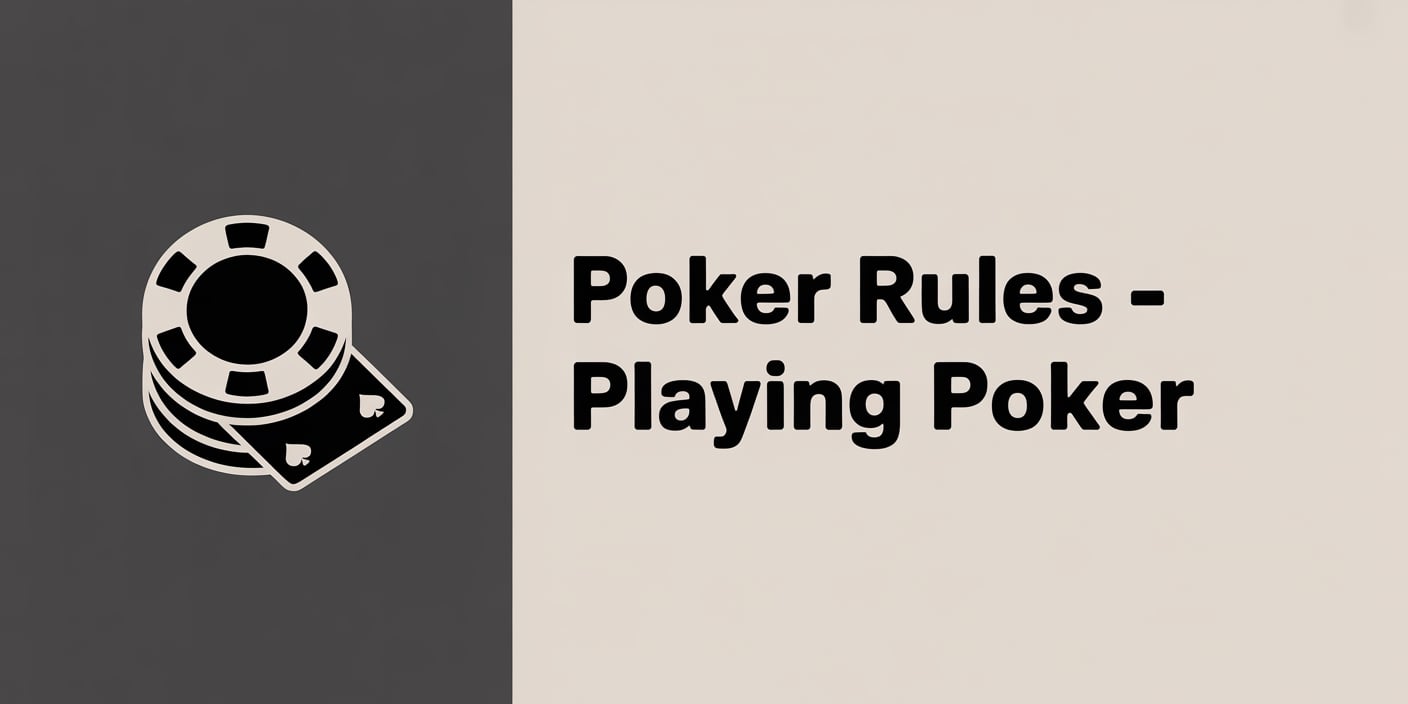Poker Rules – Playing Poker

The game most commonly known across the globe, poker has millions of players from all over the world. Every day, several players attempt their luck in a cash game or tournament. For those who would like to begin with an added value, acquiring a poker bonus can be a great way to begin playing with an advantage.
However, poker is not solely a game of chance. Instead, many dedicated players believe that luck plays very little role compared to other card games. Some even assert that poker success depends completely on strategy and skill. This belief is one of the most fundamental explanations for why poker is so popular.
Below, we’ll explain how to play poker at Bwin Poker, what the rules are, the ranking of poker hands, and general tips that are useful for both beginners and more experienced players.
Poker Rules
The goal in poker is to take the pot – the total amount of money gathered in the middle of the table from the bets by the players. The pot goes to the highest-hand player, or is divided between players who hold equally high hands.
The game starts with the dealer distributing two face-down cards to each player. These are concealed until the round is complete or an all-in is made. Then, five community cards are shuffled face-up on the table. These are used by all players along with their concealed cards to form the best possible hand of five cards. The player can utilize any five cards — they do not have to be necessarily two from the hand and three from the table.
The Blinds
Each round starts with two mandatory bets called the blinds, which are put up by the two players to the immediate left of the dealer. They are the small blind and the big blind. The dealer's position rotates to the clockwise direction each hand. Players putting up the blinds put them up last during the pre-flop betting round.
The Betting Rounds
- Pre-Flop – Players are dealt their private cards and place their first bets.
- Flop – Three community cards are revealed.
- Turn – A fourth community card is dealt.
- River – The final of the five community cards is revealed.
- Showdown – Players reveal their cards, and the hand with highest rank wins the pot.
Player Actions
The following are the actions players can take at each betting round:
- Check – Pass the action without a bet.
- Bet / Raise – Put in or raise a bet.
- Re-raise – Raise after the action has already been raised.
- Fold – Return the hand and forfeit any money bet so far.
Poker Hands (Hand Rankings)
Knowing the relative value of poker hands is useful. The following are the standard combinations from lowest ranking to highest ranking:
- High Card – No pair; the highest card will prevail.
- Pair – Two of the same rank.
- Two Pairs – Two distinct pairs.
- Three of a Kind – Three of the same rank.
- Straight – Five cards in sequential order, but of different suits.
- Flush – Five cards of the same suit.
- Full House – A pair and three of a kind.
- Four of a Kind – Four of the same rank.
- Straight Flush – Five of the same suit in sequential order.
- Royal Flush – A straight flush from ten to ace; the highest possible hand.
Bluffing in Poker
Bluffing is a key part of poker strategy. Other players realize it's not so much the hand you play, but how you play it. For example, a player with a weak hand like 2-7 (the worst starting hand) might bluff successfully and have people believe that they have a far superior hand.
Bluffing Tips
- Bet aggressively with no strong hand to have opponents fold.
- Check on a strong hand to get other players to bet.
- Semi-bluff when your hand isn’t strong yet but has potential (e.g., drawing to a flush or straight).
- Always observe your opponents to understand their playing style and betting patterns.
- Don’t overuse bluffing — experienced players will catch on and call your bluffs.
Poker Strategy – How to Win
While poker doesn’t use fixed systems like roulette, several basic tips can improve your chances:
- Play your cards strategically. Don't overvalue face cards with no support — i.e., a King and a Three is a bad hand.
- Play the right table and stakes for your level of skill and bankroll.
- Master odds and risk. Always balance the possibility of improving your hand with the risk.
- Be aware of chip stacks in tournament play. Avoid doubling up short stack opponents or feeding the chip leader.
- Position matters. Being in a later position (e.g., being on the button) is more informative and controlling.
- Maintain emotional balance. Whether winning or losing, you need to be thinking clearly.

